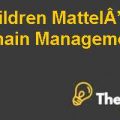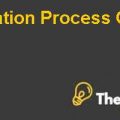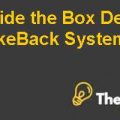Introduction
Fast grow is a company that owns approximately 60 properties. These properties are operated as discount department stores. These properties are free standing type stores. The stores properties consist of 200,000 square feet each. Due to the increasing losses from its retail operations, Fast grow decided to close down its discount department stores.
In 1986, all 11 of its properties had been leased out to major chain as a long term operating lease. 50% of 11 other stores had also been leased out to another retail chain under operating lease. The operating period is from 18 to 23 years.
After converting remaining properties into Strip shopping centers, Fast grow believes that it can sell or lease the remaining properties where it would operate large department store as an anchor store. After conversion, the other smaller stores would also be leased out to other retailers or businesses
It would take 9 to 23 months to convert remaining properties into strip shopping centers and rent the remaining properties. Fast grow decided not to charge depreciation on the properties during conversion period,since the company believes that past depreciation policies while converting properties into strip shopping centers would not make any sense to apply on these properties.
The reason for not charging depreciation on these properties which are provided by the fast grow are as follows:
Since the nature of the business is changing to the extent that new entity is emerging or is in a process of emerging, that is why they are not charging depreciation during conversion period.
The second reason is that properties are currently carried at lower amount than current market values.
The third reason is that the remaining useful life of properties as rental properties is more than current accounting lives of properties
Fast grow decided to suspend depreciation during conversion period and and start charging after the conversion period. Fast grow doesn’t want to enhance unduly the revenue upon the rent-up by charging depreciation to prior years. .
As a partner-in-charge on the engagement, I agree with Fast grow’s proposed method of accounting for depreciation during the conversion period. Fast grow should not charge depreciation during conversion period.
According to IAS 16 Property plan and equipment depreciation should be charged when asset is available for use and continues until the De recognition of the asset despite asset is held as idle. (IAS 16.48)
In this case, Fast grow is converting its properties into Strip Shopping center and during the conversion the properties would not be in a position to be used for carrying out activities that is why, as mentioned in IAS 16, Fast grow should not charge depreciation during conversion period. Properties are idle and being developed it makes no sense to charge depreciation while converting properties into Strip Shopping Center.
IFRS 5 non-current asset held for sale and discontinued operations prescribes the accounting treatment in relation to non-current asset held for sale. Generally assets are not depreciated if they are held for sale. Assets held for sale are carried at lower of fair value less cost to sell and carrying amount(Deloitte, 2015).
Fast grow would sell some properties after converting into Strip shopping center and some properties will be leased out. Following are the criteria in order to recognize asset as held for sale:
- The management must be committed to plan in order to sell the asset
- In order to sale immediately, asset must be available.
- In order to locate the buyer, active program must be initiated.
- The sale of the asset must be highly probable in the 12 month of classification
- The asset must be marketed at reasonable price (IFRS 5.6-8)
Depreciation Policies Case Solution
The fast grow should consider if the sale of the property is highly probable within 12 months then it should reclassify it as non-current asset held for sale. As mention it would take 9 to 23 months for the conversion.
If it takes 9 month for conversion then sale of property is highly probable within 12 month then as of now it should recognize these properties as non-current asset held for sale and no depreciation will be charged at non-current asset held for sale.
In the period of conversion no depreciation will be charged on these properties since these properties are not yet available for immediate use. Fast grow’s decision for not charging depreciation during conversion period is appropriate.....................
This is just a sample partial case solution. Please place the order on the website to order your own originally done case solution.












